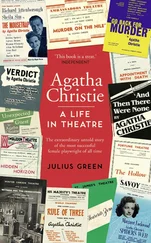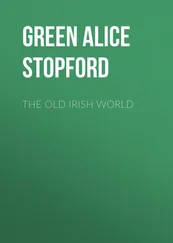Alice Green - Town Life in the Fifteenth Century, Volume 2
Здесь есть возможность читать онлайн «Alice Green - Town Life in the Fifteenth Century, Volume 2» — ознакомительный отрывок электронной книги совершенно бесплатно, а после прочтения отрывка купить полную версию. В некоторых случаях можно слушать аудио, скачать через торрент в формате fb2 и присутствует краткое содержание. Жанр: literature_19, foreign_antique, foreign_prose, Историческая проза, на английском языке. Описание произведения, (предисловие) а так же отзывы посетителей доступны на портале библиотеки ЛибКат.
- Название:Town Life in the Fifteenth Century, Volume 2
- Автор:
- Жанр:
- Год:неизвестен
- ISBN:нет данных
- Рейтинг книги:5 / 5. Голосов: 1
-
Избранное:Добавить в избранное
- Отзывы:
-
Ваша оценка:
- 100
- 1
- 2
- 3
- 4
- 5
Town Life in the Fifteenth Century, Volume 2: краткое содержание, описание и аннотация
Предлагаем к чтению аннотацию, описание, краткое содержание или предисловие (зависит от того, что написал сам автор книги «Town Life in the Fifteenth Century, Volume 2»). Если вы не нашли необходимую информацию о книге — напишите в комментариях, мы постараемся отыскать её.
Town Life in the Fifteenth Century, Volume 2 — читать онлайн ознакомительный отрывок
Ниже представлен текст книги, разбитый по страницам. Система сохранения места последней прочитанной страницы, позволяет с удобством читать онлайн бесплатно книгу «Town Life in the Fifteenth Century, Volume 2», без необходимости каждый раз заново искать на чём Вы остановились. Поставьте закладку, и сможете в любой момент перейти на страницу, на которой закончили чтение.
Интервал:
Закладка:
“Against clean conscience, for covetyse of winning.” [153] Piers Ploughman. Passus x. 26.
Meanwhile their way was made difficult on earth, and along the road to fair or market the wandering merchant or chapman was held to ransom by the rustics, while the harmless messenger who travelled by his side was sent merrily on his road. [154] “And though they wend by the way the two together, Though the messenger make his way amid the wheat Will no wise man wroth be, nor his wed take; Is not hayward yhote [ordered] his wed for to take; But if the merchant make his way over men’s corn, And the hayward happen with him for to meet, Either his hat or his hood, or else his gloves The merchant must forego, or the money of his purse.” – Piers Ploughman. Pass. xiv. 42-50.
To the mediæval mind indeed the merchant burdened with his goods was the very type of the soul laden with sins, and painfully battling its doubtful way to heaven. He passed from peril to peril in the transport of the packages on which he had set the sign that distinguished his wares, the tall cross with shrouds [155] Hist. MSS. Com. v. 443. For merchants’ marks in S. George’s Church, Doncaster, see Hunter’s Deanery of Doncaster, i. 14.
or the flag. No navy protected his vessels on seas that swarmed with pirates, and companies of ships as ready for battle as for commerce, set out together, under command of one of the captains chosen as admiral, [156] Plummer’s Fortescue, 235.
to fight their way as best they could, while at home fear beset the owner on every side. If a merchant sent his servant over sea to Bruges, or despatched an apprentice to one of the Baltic ports to gather in the profits due to him or to carry merchandise, no man might comfort him, and no religious thought distract his spirit till his messengers returned; [157] Piers Ploughman. Pass. vii. 278-285.
and even when his goods reached port all his experience and cunning were needed to deal with the exactions of the king, who demanded the first choice of his wine or precious cargo, or to baffle the rapacity of the officers of the sheriff, the officers of the staple, the collectors of customs, the treasurers of the town, the searchers, or the clerk of the market. [158] Ibid. Pass. xiv. 50-51.
If, however, the risks of the merchant who dared the “great adventure” increased a hundredfold, so the chances open to courage and skill became more brilliant, [159] See Ship of Fools, Barclay, 43, st. 4.
and the triumphant trader became the object of national pride. London had its hero —
“The son
Of Merchandy, Richard of Whittingdon
That loadstar and chief chosen flower
What hath by him our England of honour?
That pen and paper may not me suffice
Him to describe so high he was of prise.” [160] Lib. Eng. Pol. Wright’s Political Poems, ii. 178.
A brass in the church of Chipping Camden, dated 1401, commemorates the “flower of the wool merchants of all England.” In Dartmouth the long prosperity of the Hawleys [161] Hist. MSS. Com. v. 601-4.
was recalled in the local proverb —
“Blow the wind high, blow the wind low:
It bloweth good to Hauley’s hoe.”
There were none who surpassed the merchants of Bristol – men who had made of their town the chief depot for the wine trade of southern France, a staple for leather, lead, and tin, the great mart for the fish of the Channel and for the salt trade of Brittany, whose cloth and leather were carried to Denmark to be exchanged for stock-fish, and to France and Spain for wine; who as early as 1420 made their way by compass to Iceland; whose vessels were the first from England to enter the Levant; and who when calamity fell on their business by the loss of Bordeaux, and by the competition of London merchants and the concentration of commerce in the hands of its Adventurers, turned their faces to the New World; sending out in 1480, and year after year from that time, two, three, or four light ships to sail “west of Ireland” in search of the “Island of Brasylle and the seven Cities,” till in 1496 Cabot started with five vessels on his voyage of discovery, whence he came back to live in great honour among his fellow-townsmen, dressing in silk, and known as the “Great Admiral.” [162] Hunt’s Bristol, 75, 93-5; 126-8.
The Bristol merchants of those days lived splendidly in fine houses three stories high, the grander ones having each its own tower. Underground stretched vast cellars with groined stone roofs: the ground floor was a warehouse or shop opening to the street; above this were the parlour and bedroom, with attics in the gables; while the great hall was built out behind with a lofty roof of carved timber. [163] Hunt’s Bristol, 94-5, 108. A Bristol grocer left 350 ounces of silver plate to be divided among his children. Ibid. 108. The first fork we hear of in England in 1443 belonged to a citizen family in York. “Unum par cultellorum vocat’ ‘karving knyves’ et unum par forpicum argenteorum.” (Plumpton Correspondence, xxxiv.)
In the towers treasures of plate were stored which rivalled those of the nobles, and the walls were hung with the richest tapestries, or with at least “counterfeit Arras.” Perhaps it was some such house which suggested to the poet, born perhaps in a village “cote,” and who knew Bristol well, the idea of an abode which might be offered to the Lord of heaven —
“Neither in cot neither in caitiff house was Christ y bore,
But in a burgess house, the best of all the town.” [164] Piers Ploughman. Passus, xv. 90. For Wood’s account of Oxford houses, see Boase’s Oxford, 48-9.
But the growing luxury of private life is a far less striking feature of the mediæval borough than the splendid tradition of civic patriotism and generosity which seems to have prevailed. Burghers who prospered in the world left their noblest records in the memories of their public munificence; and there were hundreds of benefactors like Thomas Elys, the Sandwich draper, who in 1392 founded the hospital of S. Thomas-the-Martyr, and endowed it with a messuage and 132 acres of land; and within five months after founded the chantry of S. Thomas-the-Martyr; [165] Boys’ Sandwich, 149, 185, 186.
or like Simon Grendon, three times mayor of Exeter, who left money to found a hospital for the poor. Gifts to churches of plate and vestments and books, legacies for chantries or for priests are too numerous to mention; [166] The plate of S. Mary’s, Sandwich, amounted to about 724 ounces of silver, and there was a good deal of silver gilt; it had splendid brocade of gold of Venice and of Lucca, and a mass of vestments of white damask powdered with gold of Venice, and blue velvet powdered with fleurs de lis, or with moons and stars, and so on. (Boys’ Sandwich, 375.) A burgess of Wycombe, Redehode, fitted up the church with beautiful screens of carved wood, and added other gifts to its store of jewels and gilt crowns for Our Lady, and other ornaments of amber, silver, jet, turquoises, with rich garments and ermine fur, damasks, velvets, silks, a baldachino bearing green branches with birds of gold, magnificent robes of cloth of gold, &c., and splendid plate. (Hist. MSS. Com. v. 554-5.)
but there was a steady tendency among the townspeople to turn their benefactions into very different channels, and bequeathing their money to the town corporation instead of a religious body, to devote it directly to secular purposes and charities of the new fashion – founding free schools, building walls, repairing bridges, maintaining harbours for their borough, or leaving a fund for the payment of the ferm rent or certain fixed taxes. An Abingdon merchant gave a thousand marks towards the bridges over the two dangerous fords, Borough Ford and Culham Ford, which had to be built by the Abingdon men “at their own cost and charges, the alms of the town, and the benevolence of well-disposed persons,” and which were to make Abingdon the high road from Gloucester to London. [167] An ironmonger, Richard Fallande, set up a tablet in Hospital Hall to remind the townsfolk of the dangers and terrors of the old ford, of passengers drowned, of poor people pitilessly turned back, or wayfarers robbed of hood or girdle to satisfy the ferry-men’s greed. People were constantly drowned and “Few folke there were coude that way wende But they waged a wed or payed of her purse And if it were a begger had breed in her bagge He schulde be ryght soone i bid for to goo aboute And of the poor penyles the hireward wold habbe A hood or a girdel and let him goo withoute.” (English Illustrated Magazine, May 1889, p. 951.) For Rochester Bridge, see Hist. MSS. Com. ix. 285.
In 1421, when the Friars who owned the sources from which Southampton had its supply of water could no longer afford to replace the decayed pipes, a burgher “for the good of his soul” left money for new leaden pipes sufficient for the whole town as well as for the friars. [168] Davies’ Southampton, 115.
An Ipswich burgess gave the very considerable sum of £140 to relieve his fellow-townsmen of certain yearly tolls; [169] Hist. MSS. Com. ix. 247. For similar bequests, Ibid. x. 4, p. 529-30. Ibid. ix. 208-10. The Common Weal (ed. E. Lamond), 18, 19.
and money was always forthcoming for gates and walls and market crosses, for the buying of new charters, the adorning of the Town Hall, or gifts of plate to the corporation; [170] Ibid. xi. 7, 169, 174, 175, 180-1. Ibid. ix. 57, 275, 137, 145. Davies’ Walks through York, 30-1.
while as we have seen, a new system of education was practically founded by the free schools which were so largely endowed by their liberality.
Интервал:
Закладка:
Похожие книги на «Town Life in the Fifteenth Century, Volume 2»
Представляем Вашему вниманию похожие книги на «Town Life in the Fifteenth Century, Volume 2» списком для выбора. Мы отобрали схожую по названию и смыслу литературу в надежде предоставить читателям больше вариантов отыскать новые, интересные, ещё непрочитанные произведения.
Обсуждение, отзывы о книге «Town Life in the Fifteenth Century, Volume 2» и просто собственные мнения читателей. Оставьте ваши комментарии, напишите, что Вы думаете о произведении, его смысле или главных героях. Укажите что конкретно понравилось, а что нет, и почему Вы так считаете.












